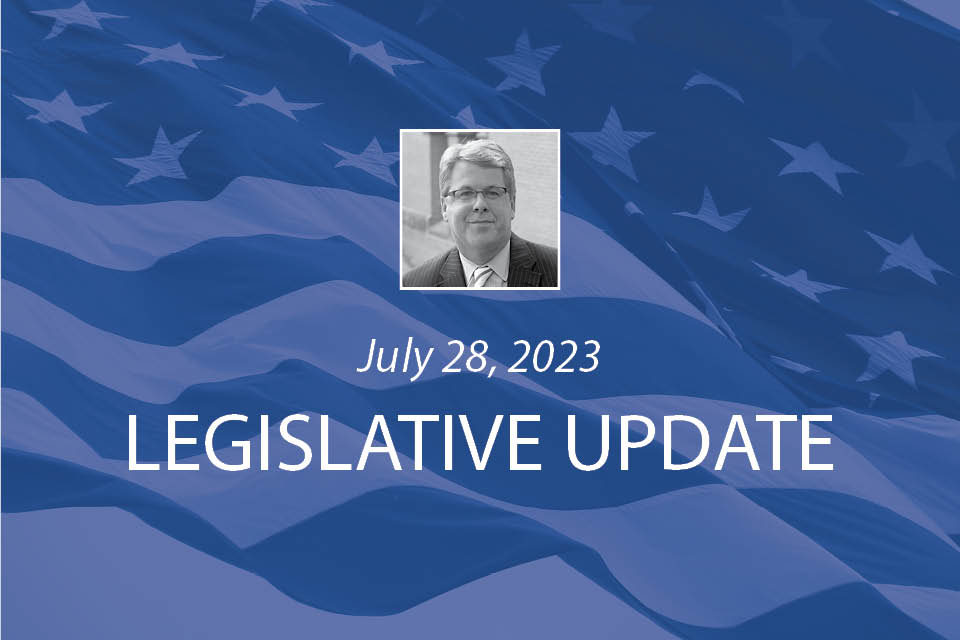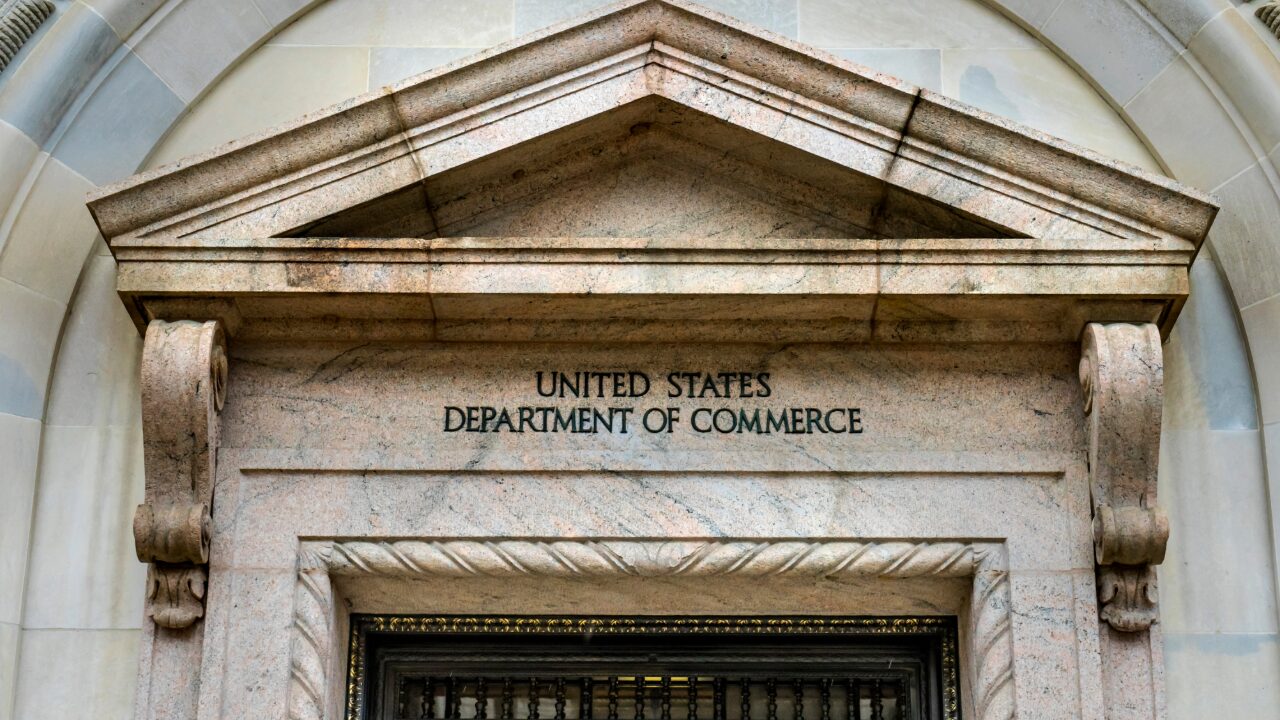Congress
Members of Congress from both houses will leave town today for the annual August recess. The Senate is expected to return to Washington the week of Labor Day, while the House will be coming back that second week of September. The immediate deliverable when they return is to pass a government funding measure that will keep federal funds flowing after September 30. While both the House and Senate have been advancing Fiscal Year 2024 appropriations bills, their work in this space will not be complete by the end of September. This will necessitate a short-term funding measure to avoid a government shutdown beginning October 1.
Credit Card Competition Act
In a positive development this week, an amendment to the National Defense Authorization Act (NDAA) reauthorization legislation which is being considered on the Senate floor was offered by Senators Roger Marshall (R-KS), Dick Durbin (D-IL) and Peter Welch (D-VT). The amendment embodies all the provisions of the Credit Card Competition Act, legislation that would enhance competition and choice in the credit card network market. Specifically, the bill would direct the Federal Reserve to ensure that credit card-issuing banks offer a choice of at least two networks over which an electronic credit transaction may be processed, with certain exceptions.
Senator Durbin had this to say about the bill: “Credit card swipe fees inflate the prices that consumers pay for groceries and gas. It’s time to inject real competition into the credit card network market, which is dominated by the Visa-Mastercard duopoly. This legislation, which builds upon pro-competition reforms Congress enacted in 2010, would give small businesses a meaningful choice when it comes to card networks, and it would enable innovators to gain a foothold in credit cards. Bringing real competition to credit card networks will help reduce swipe fees and hold down costs for Main Street merchants and their customers.”
And Senator Marshall issued this statement: “When it comes to Main Street vs Wall Street, I’ll choose Main Street every time. Convenience stores, gas stations and other small businesses in Kansas are being taken advantage of by Visa and MasterCard on behalf of big banks in New York City at a time when they, and the communities they serve, are grappling with crippling inflation and staring down the barrel of a looming recession. It’s gone on long enough. Competition is the heartbeat of capitalism and that is what our bill will create, competition.”
The American Bankers Association and other groups representing the financial sector are waging an aggressive lobbying campaign against this amendment and this legislation, which is pending in both the House and Senate. ABMA will keep you apprised of developments on this crucial issue.
Tax
Today, Rep. Lloyd Smucker (R-PA) introduced the Main Street Tax Certainty Act, H.R. 4721–legislation that would permanently extend Section 199A of the Internal Revenue Code, which is slated to expire in 2025. Smucker’s bipartisan legislation is cosponsored by 92 Members and is supported by all Republican Members of the Ways & Means Committee. The bill’s companion in the Senate is S. 1706, sponsored by Sen. Steve Daines (R-MT).
Section 199A allows up to a 20 percent pass-through income deduction for small businesses organized as sole proprietorships, partnerships, S corporations, trusts, or estates, or income from qualified REIT dividends and income from publicly traded partnerships.
Heat Hazard Alert
Today, President Biden issued the first-ever Hazard Alert for heat which accompanies his directive to the Department of Labor to ramp up enforcement activities to protect workers from heat hazards at the workplace. In its announcement, the Administration specifically calls out the construction sector. The announcement may be found here: https://www.whitehouse.gov/briefing-room/statements-releases/2023/07/27/fact-sheet-president-biden-to-announce-new-actions-to-protect-workers-and-communities-from-extreme-heat/
Alongside this effort, the Occupational Safety and Health Administration (OSHA) is developing a national workplace safety standard for heat exposure. That process is in its nascent stages.
Wood Building Products Legislation to be Introduced.
ABMA learned on Wednesday that Senators Wyden (D-OR) and Crapo (R-ID) are introducing legislation titled Timber Innovation for Building Rural Communities Act. Rep. Salinas (D-OR) and Duarte (R-CA) are co-sponsoring companion legislation in the House. ABMA received a copy of drafted language and there are several provisions of interest, including:
- Language amending the Wood Innovation Grant Program to recognize the carbon reduction strategies in building design and the environmental benefits associated with wood products from anticipated wood supply areas including wildfire risk reduction, increased fiber flow, forest or mill jobs, and support for forest communities created because of forest management.
- Creation of a “Wood Education Accelerator Grant Program to support the development of university curricula, programs, and best practices related to designing and building with wood, including the use of traditional wood products, mass timber, and other advanced products.




